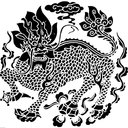Adjuvant rhubarb alleviates organs dysfunction and inhibits inflammation in heat stroke.
Kata kunci
Abstrak
The aim of the present study was to investigate the effects of adjuvant rhubarb on the recovery of patients with heat stroke. A total of 85 patients with heat stroke were randomly assigned to two treatment groups: One group receiving conventional treatment for heat stroke (conventional group) and one group receiving rhubarb supplement in addition to conventional treatment (rhubarb group). Liver and kidney function parameters, Acute Physiology and Chronic Health Evaluation (APACHE) II scores, plasma interleukin-6 (IL-6), procalcitonin (PCT), C-reactive protein (CRP) levels and venous white blood cell count (WBC) were analyzed. The length of stay in the intensive care units (ICUs) and hospital were recorded. Kaplan-Meier curves were drawn to determine the 30-day survival of the patients. The results indicated that rhubarb supplementation significantly reduced the WBC, as well as CRP, PCT and IL-6 levels at treatment days 3-5. Furthermore, rhubarb intake was observed to limit heat stroke-induced damage to liver and kidney function by decreasing the abnormally high levels of plasma aspartate aminotransferase, alanine aminotransferase and creatinine. Finally, patients in the rhubarb group had shorter ICU and hospital stays as well as a lower APACHE II score than those in the conventional group. However, no significant difference in the 30-day mortality rate was observed between the two groups. In conclusion, rhubarb intake provided a significant benefit for patients with heat stroke by inhibiting systemic inflammation and mitigating liver and kidney injury.


